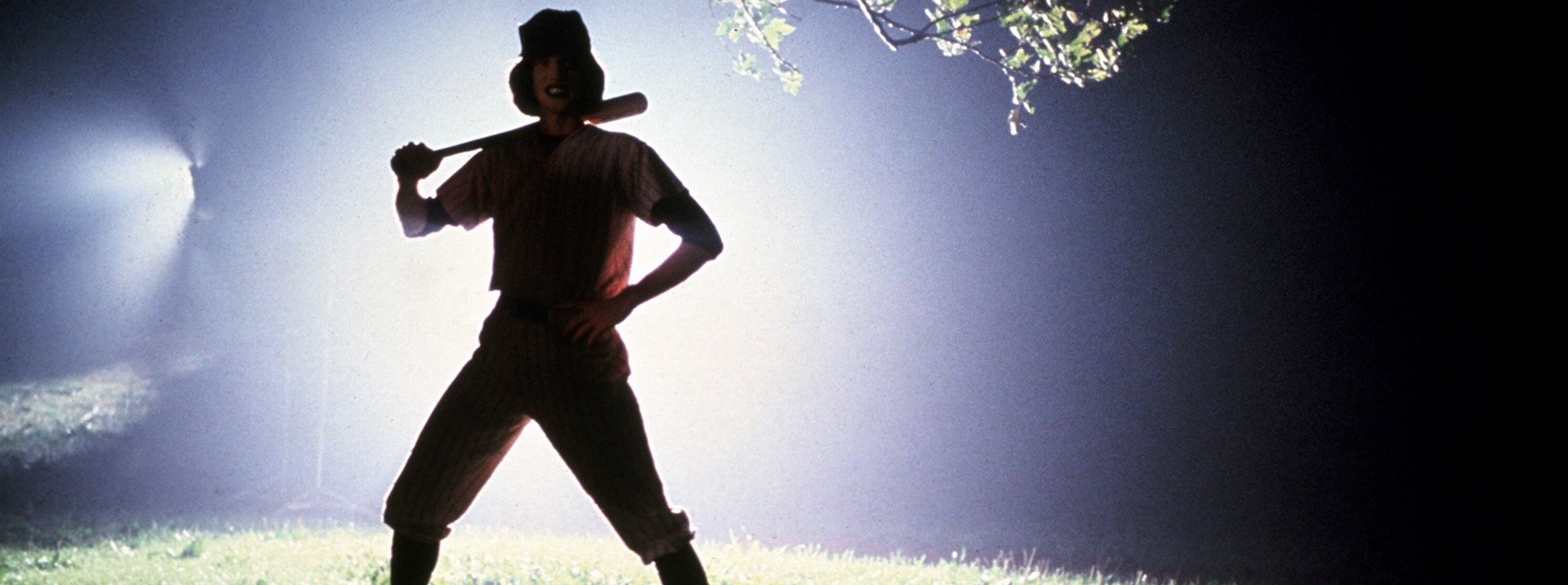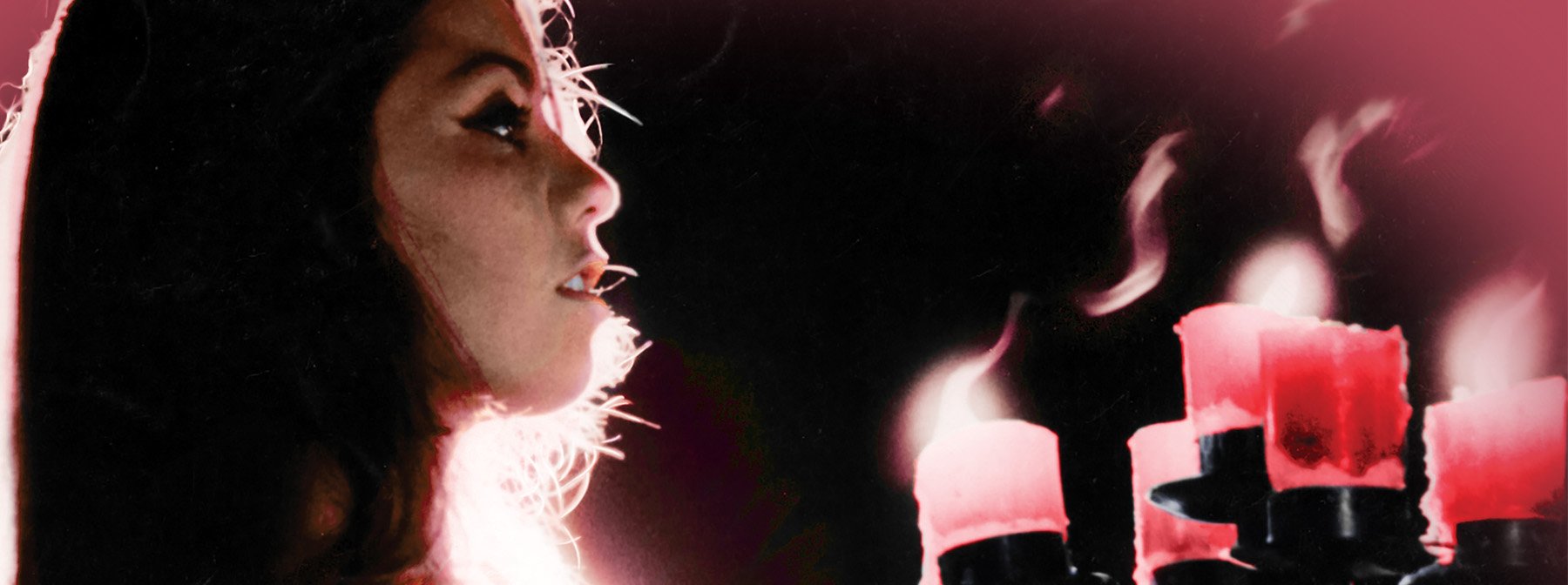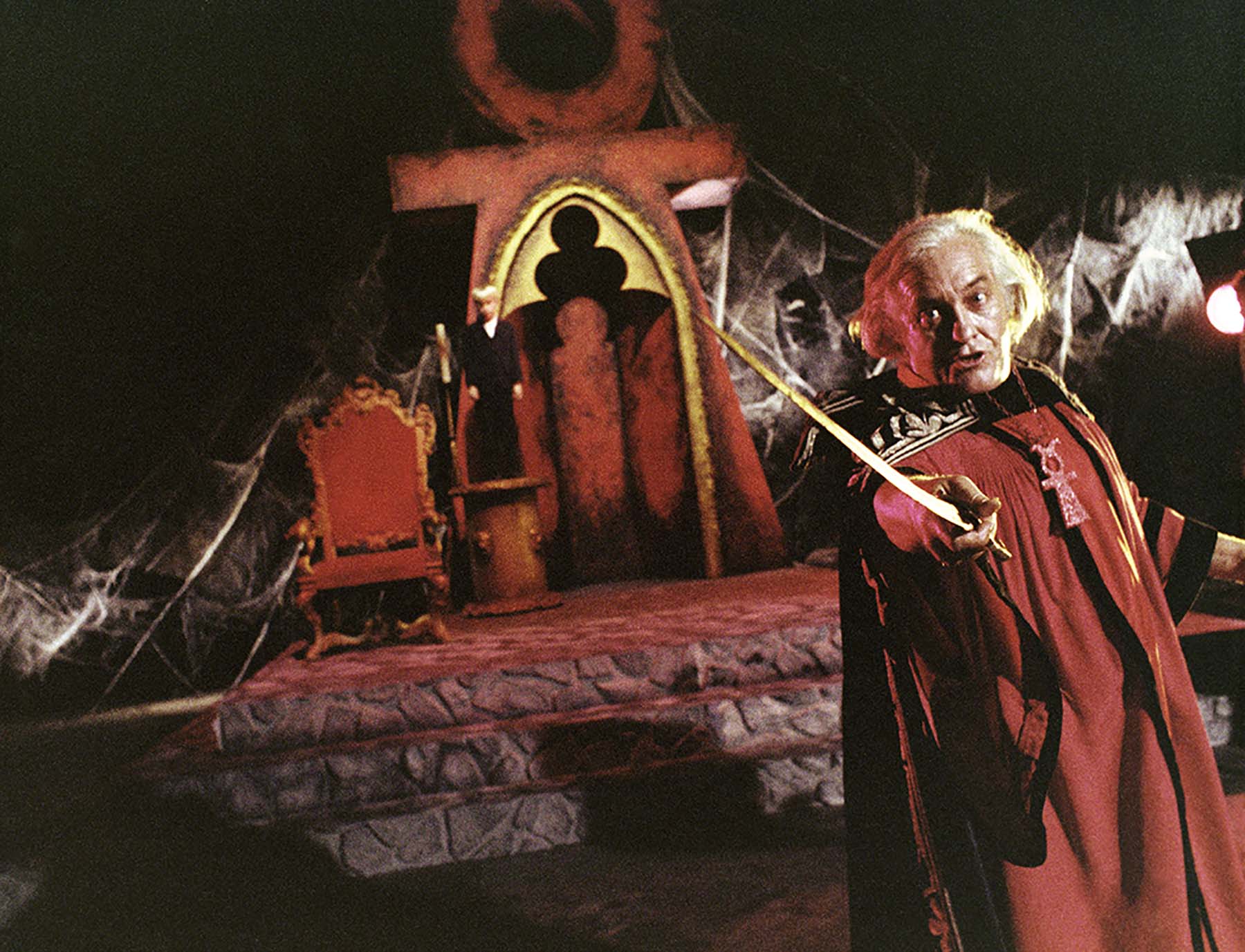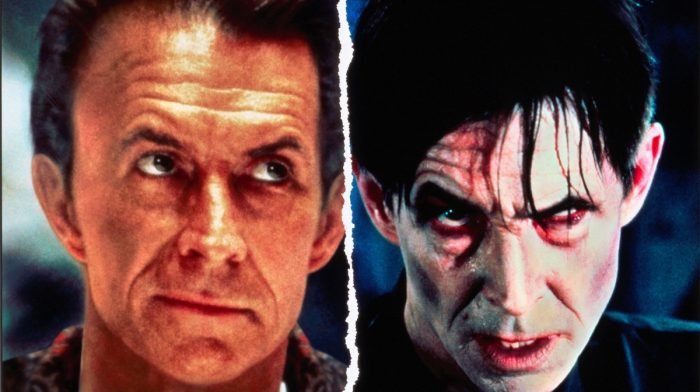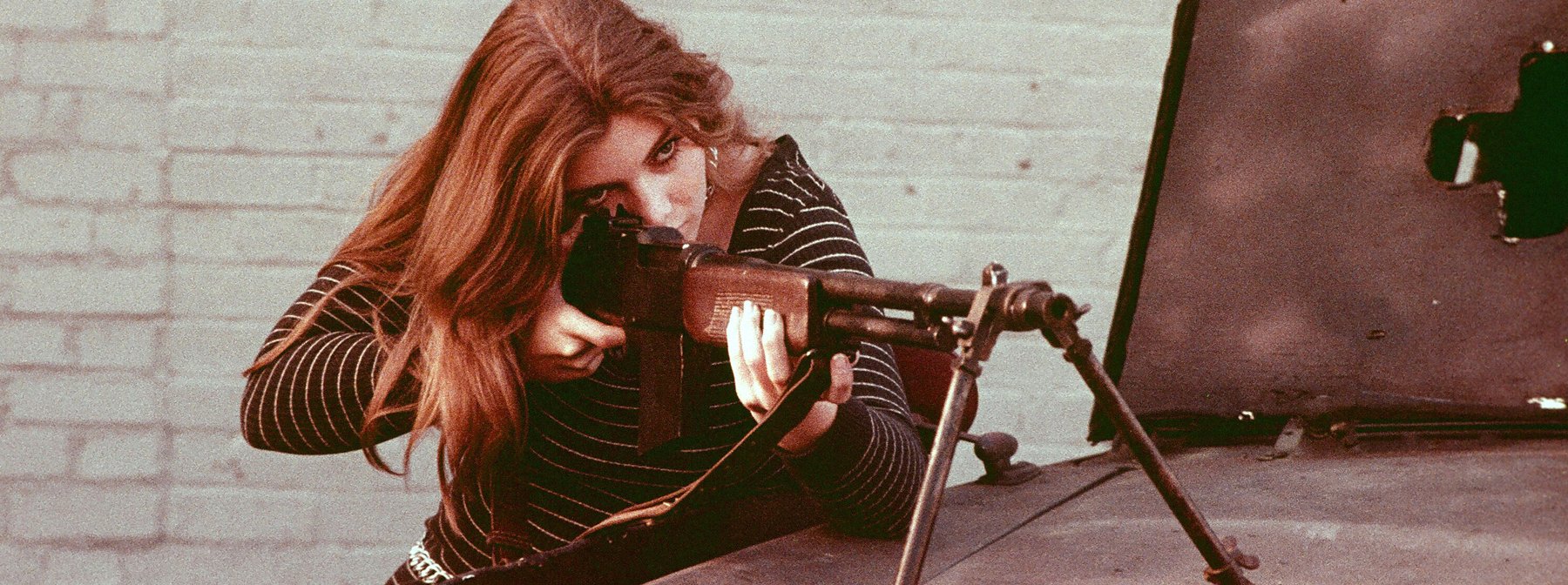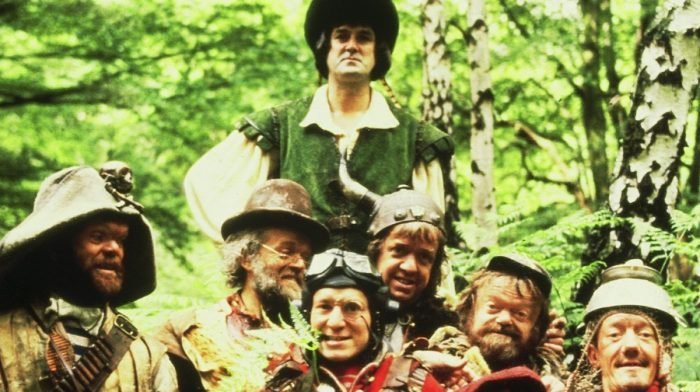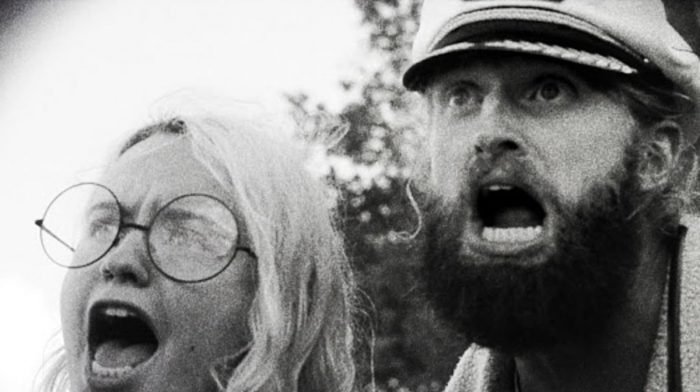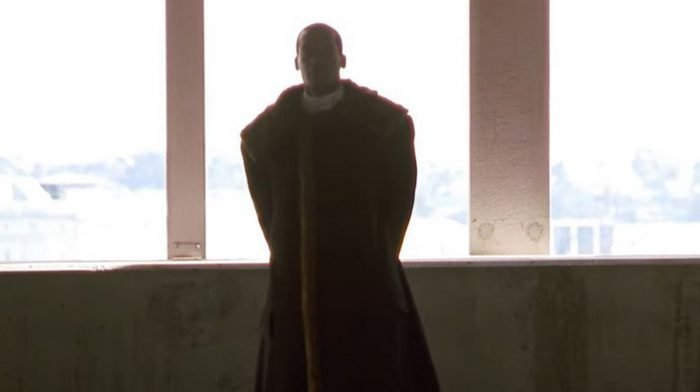Genre filmmakers have charted fascinating territories in exploring the eastern belief in reincarnation, spinning the idea of the soul’s transmigration into outlandish cinema. Robert Wise’s hallmark Audrey Rose (1977) used reincarnation as its foundation for a haunting tale of profound grief. Anthony Hopkins portrays Elliot Hoover, an anguished widower who believes his deceased daughter has returned as the child of an affluent New York City couple, and whose confrontation with the family ends in tragedy. The following list complements Wise’s solemn vision, and includes a wide array of mainstream and cult films that feature the souls of ruthless gangsters, twisted serial killers, and spurned witches, transposed into unwilling vessels to exact revenge, reconcile doomed love, or murder again.
I Married a Witch (1942)
The alluring Veronica Lake stars as Jennifer, a vengeful witch burned at the stake in colonial Salem, who returns centuries later. She schemes to marry Wallace Wooley (Fredric March), the descendent of the Puritan who condemned her and her father Daniel (Cecil Kellaway), to enact a generational curse on the family by ruining Wooley’s life. Jennifer’s plans change when she and Wallace become romantically entangled, infuriating Daniel, and pitting the two witches against one another.
The film was directed by French filmmaker René Clair, a specialist in fantastical comedies and musicals, who often accentuated his work with surreal flourishes. Clair keeps the tone playful despite the grim reminder of historical atrocities associated with religious persecution that serves as the story’s foundation. As expected, the ethereal Lake shines as the devious conjurer whose scorn for Wooley is softened by the power of love.
J.D.’s Revenge (1976)
After Issac “Ike” Hendrix (Glynn Turman) is hypnotized, his body is entered by the spirit of J.D. Walker (David McNight), a ruthless hustler from the 1940s seeking vengeance on the gangster (Fred Pinkard) who murdered him and his sister. Ike, adopting J.D.’s outdated style and gruff mannerisms, targets Walker’s old enemies, alienates himself from his friends, and rapes his own wife Christella (Joan Pringle), under the power of Walker’s insatiable dark desires. Despite his irredeemable behavior, Ike gains our sympathies as both victim and aggressor.
Solid direction by Arthur Marks makes wonderful use of the New Orleans locations, an occult atmosphere penetrating every corner of the city, from night clubs to churches to the meat packing plant where Walker was struck down. Marks’s film is a thrilling entry in the canon of blaxploitation cinema, driven by a vicious antagonist who slaps, slices, and shoots his way through the underbelly of the “Big Easy.”
The Reincarnation of Peter Proud (1975)
Lee Thompson’s moody psychological thriller focuses on the titular Peter Proud (Michael Serazzin), a man plagued by vivid, terrifying dreams of a man’s murder on a lake. Subsequent flashbacks lead him to discover that he’s the reincarnation of Jeff Curtis (Tony Stephano), a philandering New Englander who was murdered decades before by his jilted wife Marcia (Margot Kidder). Peter’s obsession with the visions leads him to an affluent Massachusetts community where he encounters Marcia and her daughter Ann (Jennifer O’Neill), provoking Freudian entanglements and disturbing revelations.
Thompson’s film isn’t flashy, but the director employs jarring imagery to express Peter’s encroaching nightmares. The film is powered by a trippy electro-fused score by Jerry Goldsmith that emphasises the eeriness of Peter’s ill-fated mission as it moves toward a grim conclusion.
The Manitou (1978)
Based on the Graham Masterton novel, William Girdler’s The Manitou (1978) concerns a woman (Susan Strasberg) who is hospitalised with a large tumour growing on her back containing the spirit of a malevolent 400-year-old shaman. The ancient spirit continually reincarnates through generations to get revenge on the white men responsible for the extinction of his tribe.
Girdler employs an unfettered silliness that somehow works, mainly for the casting of Tony Curtis as a psychic medium at the centre of it all, whose penchant for comedic quirkiness is an asset to the campy absurdity that unfolds. When the manitou finally bursts from its host, the film culminates in an outrageous showdown through a portal into space, complete with bizarre Tom Burman makeup effects and a dazzling optical light show.
The Wraith (1986)
In Mike Marvin’s full-throttle revenge film, the soul of a murdered young man called Jamie returns as a mysterious helmeted figure, clad in sleek armour, who drives a super-charged turbo interceptor. The apparition takes on a gang of ruthless desert pirates led by the sadistic Packard (Nick Cassavettes), who terrorises an Arizona community, and who were responsible for Jamie’s death.
A stellar cast includes Sherilyn Fenn (Twin Peaks), Clint Howard (Evilspeak), and Randy Quaid (The Last Detail, Parents), who suspect a motorcycle riding drifter named Jake Kasey (Charlie Sheen) is connected to a string of fiery crashes that take out gang members in ordered fashion. Cinematographer Reed Smoot makes stunning use of the desert landscape, and the film is a showcase for exhilarating car stunt work.
Retribution (1987)
Guy Magar’s underseen gem centres on mild-mannered artist George Miller (Dennis Lipscomb) whose body is inhabited by a slain gangster Vito Minelli on Halloween night, when both men die at the same time. After rehabilitation, George becomes an agent of vengeance, targeting those who murdered Minelli, who controls George’s body while he sleeps.
Magar’s vastly underrated horror film is a journey through Los Angeles’s underground clubs and fringe art galleries, a fun snapshot of the counterculture of the time. The glorious uncut version of the film features startling makeup effects and terrific sequences of telekinetic mayhem, powered by Alan Howarth’s electrifying score. Despite its plentiful over-the-top supernatural gags, the film is grounded by Lipscombe’s sympathetic performance, a conflicted protagonist controlled by a terrifying force, who we long to see freed from torment.
Dead Again (1991)
Kenneth Branagh’s follow up to his acclaimed Henry V (1989), Dead Again is part gothic thriller, and part neo-noir mystery, anchored by terrific dual performances from Branagh and Emma Thompson, along with Derek Jacobi and Andy Garcia in key roles . The pair portray two sets of characters living in two separate time periods, whose present and past lives intertwine. In post-war Los Angeles, famous composer Roman Strauss (Branagh), sentenced to death row after being convicted of murdering his wife Margaret (Thompson) with a pair of scissors, while in the modern day L.A., private investigator Mike Church (Branagh) helps a mute amnesiac “Grace,” (Thompson) who has been experiencing flashbacks in which she is a murder victim. As the story unravels, Grace is convinced that she’s destined to die again, by Church’s hand, revealed through her fragmented memories and dreams.
Branagh’s baroque vision intercuts between the two time periods, urging Mike and Grace toward startling revelations, where past and present collide, compellingly expressed through Branagh’s grand theatrical flair and surprising humorous streak.
Bad Karma (2001)
Bad Karma is an underseen fantasy-thriller directed by John Hough (Twins of Evil, The Legend of Hell House), based on a novel by Bram Stoker award-winner Douglas Clegg. The blood-soaked film stars Patrick Muldoon (Starship Troopers) as psychiatrist Dr. Trey Campbell, whose family is stalked on by one of his patients (Patsy Kensit) who believes she and the doctor are the reincarnation of Jack the Ripper and his lover.
Lacklustre performances by the core cast are overcome by Hough’s stylish direction, using atmospheric Irish locations, lensed by prolific cinematographer Jacques Haitkin (A Nightmare on Elm Street). While far from his peak output, Hough shakes up the melodrama with effectively gory throat slashings and disembowelment, worthy of its legendary Whitechapel counterpart.
Eega/Naan Ee/The Fly (2012)
S.S. Rajamouli turns blockbuster spectacle on its head with his audacious and hyper-stylised crowd-pleaser Eega, a dazzling blend of fantasy, comedy, musical, revenge thriller, and romance filled with sumptuous visuals and a wry sense of humour. The story involves a young man Nani (Ghanta Naveen Babu) who is murdered by Sudeep (Sudeep Sanjeev), a ruthless industrialist and womaniser who sees Nani as a romantic rival for the love of a beautiful artist named Bindu (Samantha Ruth Brabhu). Nani is reincarnated as a fly, whose miniscule stature doesn’t hinder his relentless quest for vengeance, soaring through the most dangerous situations, outfitted with tiny weapons.
Eega is refreshingly unpredictable, a hilarious and action-packed journey from start to finish. Rajamouli (RRR) embraces the absurdity, while generating enormous pathos for the fly on its perilous quest, pitted against a terrifically sleazy villain.

